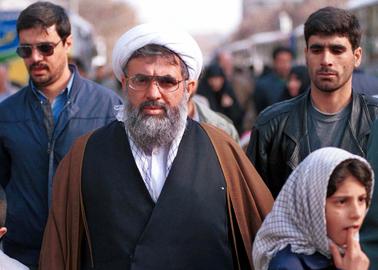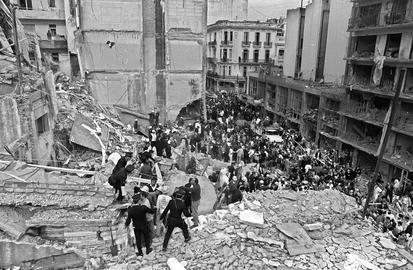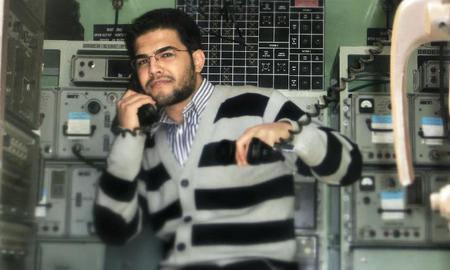A United States government report has highlighted diplomats’ suspected involvement in crime and terrorist activity linked to the Iranian government overseas.
The fact sheet, published by the US State Department on Friday, May 22, notes that since 1979 the Iranian regime has been linked to assassinations and terror plots in more than 40 countries.
In what they called a “global campaign of terror”, the report’s authors claimed that as many as 360 targeted assassinations overseas, as well as bomb attacks that had killed and maimed hundreds, could be traced to arms of the Iranian government.
Iran engaged in these attacks, they said, primarily the Revolutionary Guards’ Quds Force and the Ministry of Intelligence and Security, but also via third parties and proxies such as Hezbollah.
Paarticular prominence was also given to diplomats’ roles in horrific incidents on foreign soil over the past four decades.
“Diplomatic personnel have repeatedly been implicated in assassinations abroad, as evidenced by arrest warrants, judicial and police investigations, intelligence services, and witness reports,” the publication states. “Iran consistently lies about its involvement in killings abroad, even when its own diplomatic personnel are caught surveilling attack targets, providing explosives or fleeing crime scenes.”
New Sanctions Over Killings on Foreign Soil
Three days ago the US barred Ali Fallahian, the head of Iran’s intelligence service from 1989 to 1997, from traveling to the United States due to what it called “credible information” on his past involvement in political assassinations in Europe, including cases in which Swiss and German courts had issued warrants for his arrest.
On July 9, 1995, a 20-year-old US citizen and student, Alisa Michelle Flatow, was killed in a suicide bombing in the Gaza Strip. A terrorist group supported by Iran claimed responsibility and in 1998, a US federal court found Fallahian had personally approved provision of resources to this group.
Fallahian has also been linked to the 1994 bombing of the Argentina-Israelite Mutual Aid Association in Buenos Aires, in which 85 people were killed and hundreds of others were wounded. In 2006 Argentina issued an international arrest warrant for Fallahian based on evidence the attack had been carried out under his direction. The IRGC-backed cultural attaché at the Iranian Embassy at the time, Mohsen Rabbani, was described as the “mastermind” of the bombing. Iran has always denied involvement in the attack.
Silencing of Dissidents
The US State Department report also highlights other instances in which Iranian diplomats are thought to have played a decisive role in crimes committed overseas. Since 2018, Asadollah Asadi, a diplomat then-assigned to Austria, has been held in a Belgian prison awaiting trial based on evidence that he provided explosives to bomb a dissident rally in Paris.
In March 2020, senior Turkish officials accused Iranian diplomats of ordering and coordinating the killing of Iranian dissident Masoud Molavi Vardanjani in November 2019.
After this made headlines around the world, US Secretary of State Mike Pompeo tweeted on April 1: “Reports that Iranian diplomats were involved are disturbing but fully consistent... Iran’s “diplomats” are agents of terror and have conducted multiple assassinations and bomb plots in Europe over the past decade.”
The report claims the Iranian regime carries out “constant” surveillance on Iranian dissidents, civil society activists abroad, and makes efforts to silence them.
Iran, it says, is “well known” for misusing INTERPOL Red Notices to pursue political dissidents or even to “kidnap” them and bring them back to Iran to face arbitrary detention, torture and execution.
It stated: “Iran leverages its well-earned reputation for extrajudicial killings to try to silence civil society through death threats against activists, dissidents, and journalists.”
visit the accountability section
In this section of Iran Wire, you can contact the officials and launch your campaign for various problems



























comments